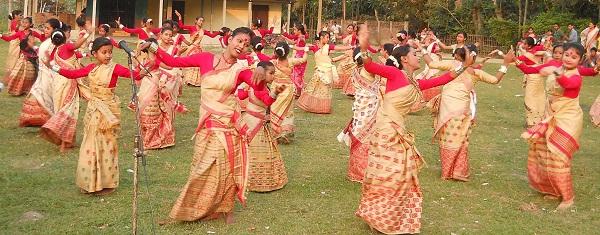Rongali Bihu: Celebrating Assamese New Year

Introduction to Rongali Bihu
Rongali Bihu, also known as Bohag Bihu, is one of the most significant festivals in Assam, celebrating the Assamese New Year and the arrival of spring. This vibrant festival, usually held in mid-April, plays a crucial role in the cultural identity of the Assamese people. It brings together communities to celebrate the end of the harvesting season and the beginning of new agricultural activities, making it an emblem of joy and abundance.
Historical and Cultural Significance
The origins of Rongali Bihu date back centuries, with its roots deeply embedded in the agrarian society of Assam. It is celebrated with great enthusiasm and pomp across the state, marked by various cultural programs, traditional music, and dance. The festivities typically last for several days, featuring rituals that honor agricultural deities and ensure a bountiful harvest.
Festivities and Traditions
The celebrations of Rongali Bihu begin with the traditional practices of cleaning homes and preparing special dishes. People don traditional Assam attire, with men wearing ‘dhoti’ and women adorned in ‘mekhela chador’. The community comes alive with songs (Bihu geet) and dances (Bihu dance), which encapsulate the spirit of joy and community bonding. The folk tales recited during these performances often revolve around love, nature, and the rural life of Assam.
Current Celebrations and Events
This year, Rongali Bihu celebrations have been notably vibrant as communities resumed traditional festivities post-pandemic. Various cultural events have been organized across Assam, including dance competitions, fairs, and exhibitions showcasing Assamese crafts and cuisine. The Assam government has also made efforts to promote Bihu through its tourism campaigns, inviting visitors from around the world to experience this unique cultural heritage.
Conclusion: The Future of Rongali Bihu
As Rongali Bihu continues to evolve, its essence remains intact. The festival not only invites locals but also sets a stage for cultural exchange with tourists and visitors, enriching Assam’s cultural tapestry. In the coming years, with increasing global interest in traditional Indian festivals, Rongali Bihu is poised to gain recognition on a broader scale, showcasing the rich heritage of Assam while promoting unity among diverse communities.









